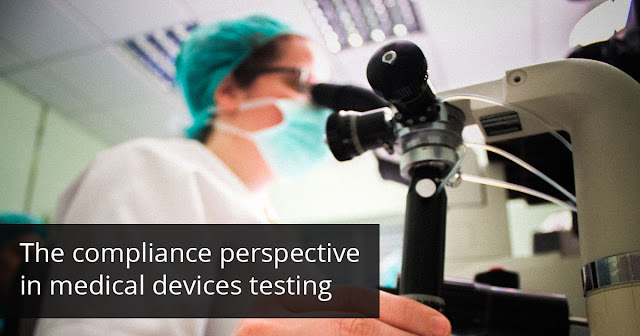The role of medical devices in screening,
diagnostics, and treatment has become critical. Modern medical devices have sophisticated
components with digital interfaces. These help to derive meaningful inferences
from the data emanating from patients’ vital stats. Since speed and quality lie
at the core of the functioning of medical devices, they need to comply with
quality standards and regulations. Also, since the functioning of medical
devices is regulated by the built-in software, the same should adhere to basic
safety guidelines or protocols.
Further, the rate of failure of medical devices has
been found to be increasing by the day leading to the establishment of IEC
62304.
What is IEC 62304?
It is the international regulatory standard defining
the SDLC requirements of software driving medical devices. The standard was
established as it was felt that product testing alone will not ensure the
safety of patients, especially when there is a software present. The standard
requires every aspect of the SDLC to be scrutinized. These include development,
configuration, risk management, maintenance, security, and problem resolution.
IEC 62304 offers a standard framework for the
manufacturers of medical devices to design software. By conforming to this
standard, manufacturers can fulfill the requirements of medical devices testing
thereby generating trust. Also, since the standard is harmonized with the
medical device directive practiced in the European Union, it has been
acknowledged as a benchmark. The devices adhering to IEC 62304 include
- Diagnosing, monitoring, or treating patients under medical supervision
- Contacting the patient - physical or electrical
- Transferring energy to/from the patient
- Monitoring or detecting such energy transfer
Digitization in healthcare can have many dimensions.
These include monitoring the performance of applications, leveraging the digital
ecosystems for the stakeholders, and calculating the quantum of investments to
drive digital transformation. The healthcare sector is being transformed with
the infusion of new technologies (wearables included) and treatment/diagnostics
methodologies. Since devices incorporating new technologies need to deliver
results with precision, they should undergo rigorous medical devices testing. Let us discuss the reasons for
validating medical devices through comprehensive Quality Assurance.
- Security: Medical devices contain sensitive data about patients’ health, which if breached, can lead to severe consequences. It is only through rigorous healthcare software testing that devices can be made hack-proof. The measures may include identifying vulnerabilities, validating and authenticating user log-ins, performing penetrating testing against firewalls, or encrypting data. Also, medical devices need to adhere to stringent quality standards such as the Health Insurance Portability and Accountability Act (HIPAA). This ensures the protection of patients’ health-related data and information.
- Usability: This is a crucial testing requirement as devices are handled by healthcare professionals while discharging their duties. Since many professionals may find it difficult to handle the features and functionalities of devices, the same should be made simpler. This is where usability testing using automation can help to simplify and enhance the user experience.
- Big data: The healthcare sector deals with a humongous quantum of data based on which inferences are drawn about the health condition of patients. These inferences are further leveraged to plan the right treatment strategy or develop a product. Big data analytics can help to derive the right inferences from the data quickly and accurately. It can help professionals to make informed decisions related to research and development, drug inventions, or curing ailments.
- Device interoperability: Medical devices need to connect and interoperate to deliver the required outcome and user experience. Since the healthcare sector needs to ensure data privacy, security, and regulatory compliance, the role of medical devices testing specialists becomes crucial. So, healthcare testing services need to apply technical expertise, resources, and time to ensure quality, compliance, and business profitability.
The testing of medical devices impinges on meeting
the regulatory requirement. Moreover, navigating the regulatory ecosystem is
crucial for the successful launch of medical devices or products. It ensures
the adherence of devices to attributes like performance, safety, and security.
Also, with the increased complexity of treatment protocols, the standards of
quality and safety of medical devices should be enhanced. These include
adherence to Electromagnetic Compatibility (EMC) testing for devices with power
supply and electronic components. The quicker these standards are complied
with, the faster companies can expect their products to become market-ready.
Conclusion
The healthcare sector deals with patients’ data and
information on a daily basis. To ensure the security of these, the medical devices testing experts ought
to ensure interoperability and flawless performance of such devices. This is
where adherence to regulatory protocols becomes important to deliver better
customer experience and market adoption.
This article is already published on dev.to.

No comments:
Post a Comment